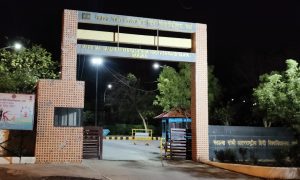The Karnataka High Court on Friday dismissed a batch of petitions filed by Wipro Chairman Azim Premji and others seeking to quash summons proceedings initiated against them by a Bangalore court in relation to a criminal case.
In January this year, the Special Judge at the City Civil Court at Bangalore had issued summons to Azim Premji, his wife, and others to face trial for the offences punishable under Sections 409 (criminal breach of trust), 34 (acts done by several persons in furtherance of common intention) and 120-B (criminal conspiracy) of the Indian Penal Code (IPC), along with Section 13(1)(d) read with Section 13(2) of the Prevention of Corruption Act, 1988. (PC Act)
Factual Background:
India Awake for Transparency, Chennai had presented three private complaints against the petitioners under Section 200 of the Criminal Procedure Code (CrPC), seeking their prosecution.
The accused persons were directors of three companies having total assets of Rs. 51,549.47 crore.
However, by taking advantage of their position as Directors, during the period of 2010-2012, the accused persons allegedly took away Rs. 13,602 crore worth assets from the three companies by way of gifts and transferred the same to a private trust controlled by them.
With respect to the remaining assets of Rs.31,342 crore, it is alleged that the accused conspired among themselves and merged the three companies into a fourth accused company, namely Hasham Investment and Trading Company Private Limited. This way, the accusedpersonsgot control over the entire assets worth Rs.31,342 crores belonging to the transferor companies. In this regard, a complaint was instituted against the accused persons and one Venkateshwara Rao, who provided consultancy services as a Chartered Accountant.
In view of this, the Special Judge issued summons to the petitioners to face trial for the aforementioned offences. Aggrieved by this order, the petitioners have approached the High Court to quash the summons order of the Special Judge.
Arguments raised by the Parties
The petitioners argued that the allegations made in the complaints, even if they are taken at their face value and accepted in their entirety, do not prima facie constitute any offences or make out a case against them.
It was also contended that the Special Judge had failed to note that the complainant had invoked Section 200 CrPC without taking recourse to Section 154(3) of CrPC. Further, the Special Judge also failed to appreciate that the amalgamation was accepted by the High Court of Karnataka after issuance of notices and by following due process of law, it was pointed out.
Petitioners’ counsel further shed light on the fact that the Special Judge also failed to note that the scheme of amalgamation was sought to be challenged by the complainant on the same set of allegations. The National Company Law Tribunal (NCLT), Bengaluru, however, dismissed the petition and the complainant took up the same in appeal before the NCLAT, Delhi. The appeal plea was dismissed by imposing costs of Rs 2 lakh.
What the High Court held
Based on the arguments advanced, the Bench of Justice John Michael Cunha noted that there were two questions of law namely,
- Whether the allegations made in the complaints prima facie disclose the ingredients of offences punishable under sections 409, 34, 120-B of IPC and sections 13(1)(d) read with 13(2) of Prevention of Corruption Act, 1988?
- Whether the order of taking cognizance by the Special Judge amounts to sitting over appeal against the orders passed by the High Court of Karnataka in sanctioning the scheme of amalgamation?
On the first point, the Court observed that facts clearly reveal that three financially robust companies were consolidated with Hasham, a loss-making company, through the process of amalgamation, and as a result, huge assets held by the transferor companies were transferred to it.
The Court noted that this was done without Hasham paying any consideration for buying the assets of the transferor companies.
“By this device or mechanism, the ownership and control of the assets of the Transferor Companies have been effectively taken over by accused Nos.1 to 3. These facts, in my view, clearly fall within the mischief of section 409 of IPC.”
Karnataka High Court
The Court further remarked that as on the date of amalgamation, the accused persons were neither the owners nor the shareholders of the transferor companies. They were only the directors of these companies. In this regard, the Court opined,
“Under the said circumstances, when the corporate vehicle is set up for the purpose of acquiring the control or ownership over the assets of the incorporated Companies to which accused Nos.1 to 3 were not legally entitled, it is necessary to find out the persons and the purpose behind setting up such a corporate vehicle on the guise of amalgamation.”
Karnataka High Court
After referring to a plethora of judicial precedents on the point of “lifting of the corporate veil”, the High Court held that,
“In the light of the above factual and legal position, the impugned order cannot be faulted with. As the allegations made in the complaints prima facie make out the ingredients of the offence under section 409 of IPC and there being clear allegations of conspiracy which are duly supported by the documents marked during the sworn statement of the complainant, the learned Special Judge was justified in issuing summons to the petitioners namely accused Nos.1 to 4 to answer the above charges.”
At this juncture, the Court further clarified that at the stage of issuing summons, the Special Judge is not required to satisfy herself as to the correctness or otherwise of the allegations made against the petitioners nor is she required to record a finding that the material produced by the complainant is sufficient to secure a conviction against the proposed accused.
Based on the above observations, the Court opined that there was no requirement to interfere with the summons order passed by the Special Judge.
On the argument of the petitioners since that the amalgamation was sanctioned by the High Court, the Special Judge had no jurisdiction to proceed against the petitioners, the Court held that as on the date of the alleged transaction, none of them had any beneficial ownership over the assets of these companies.
“The amalgamation of small firms is also permissible under law. But in the instant case, no material has been produced either by accused Nos.1 to 3 or any other accused to show that any of the three Transferor Companies belonged to accused Nos.1 to 3 or that they had any financial stake therein so that they could decide to form a larger group of Companies for whatever purpose. On the other hand, the circumstances alleged in the complaints and the facts borne on the documents produced by the complainant indicate that on the basis of amalgamation, Transferor Companies are completely obliterated and their assets are taken over by accused No.4.”
Karnataka High Court
The Court went on to state that the entire transaction was contrived to get hold of the valuable assets of the transferor companies, which was camouflaged as an amalgamation.
“It also needs to be stated that the alleged transaction is not a simple or innocuous amalgamation as sought to be made out by the petitioners; rather the whole exercise as reflected in the voluminous documents produced before the Special Court indicate that the entire transaction was contrived to get hold of the valuable assets of the Transferor Companies camouflaged as amalgamation. But for this amalgamation, in the event of winding up of the Transferor Companies, its assets would have been taken over by its legitimate shareholders and in their absence, the same would have been appropriated by the Union as bona vacantia.”
In its elaborate judgment, the Court further explained that the present complaint only pertains to the breach of trust by the directors and their conspiracy with other accused persons in committing the offences under Section 13(1)(d) of the PC Act.
With regard to the second question, the Court was informed by Senior Counsel Udaya Holla, appearing for Rao, that he is a “public servant” as defined under Section 2(c) of the PC Act.
Further, as per the amended Section 19 of the PC Act, it was contended that the Special Judge was debarred from taking cognizance of the offences punishable under Sections 7, 11, 13 and 15 against a public servant without proper sanction. It was further brought to the attention of the Court that the PC Act was amended on July 26, 2018.
As on that date, the Court had not taken cognizance of the alleged offences, Holla stated.
Responding to this issue, the Court highlighted that the facts noted in the order sheet clearly indicate that the Special Judge had applied her mind to the facts of the case right from the date of receiving the complaint and therefore, it has to be held that cognizance of the alleged offence was taken on December 18, 2017 itself, when the complainant was heard-in-part.
“Therefore, the Special Judge having taken cognizance of the offences much prior to the introduction of the amendment, it is only the law prevailing as on the date of the cognizance is applicable to the facts of the case.”
With these observations, the High Court proceeded to dismiss the petitions.
Petitioners M R Bhat and G Venkateshwara Rao were represented by Senior Advocate Udaya Holla. Azim Premji, Yaseem Premji, Pagalthivarthi Srinivasan and Hasam Investment were represented by Senior Advocate Ravi B Naik. Senior Advocate R Subramanian appeared for the complainant, India wake for Transparency.
Source: Bar & Bench




























 WhatsApp us
WhatsApp us
Pingback: colorado mushroom dispensary
Pingback: Tankless Water Heater Repair Plumbers